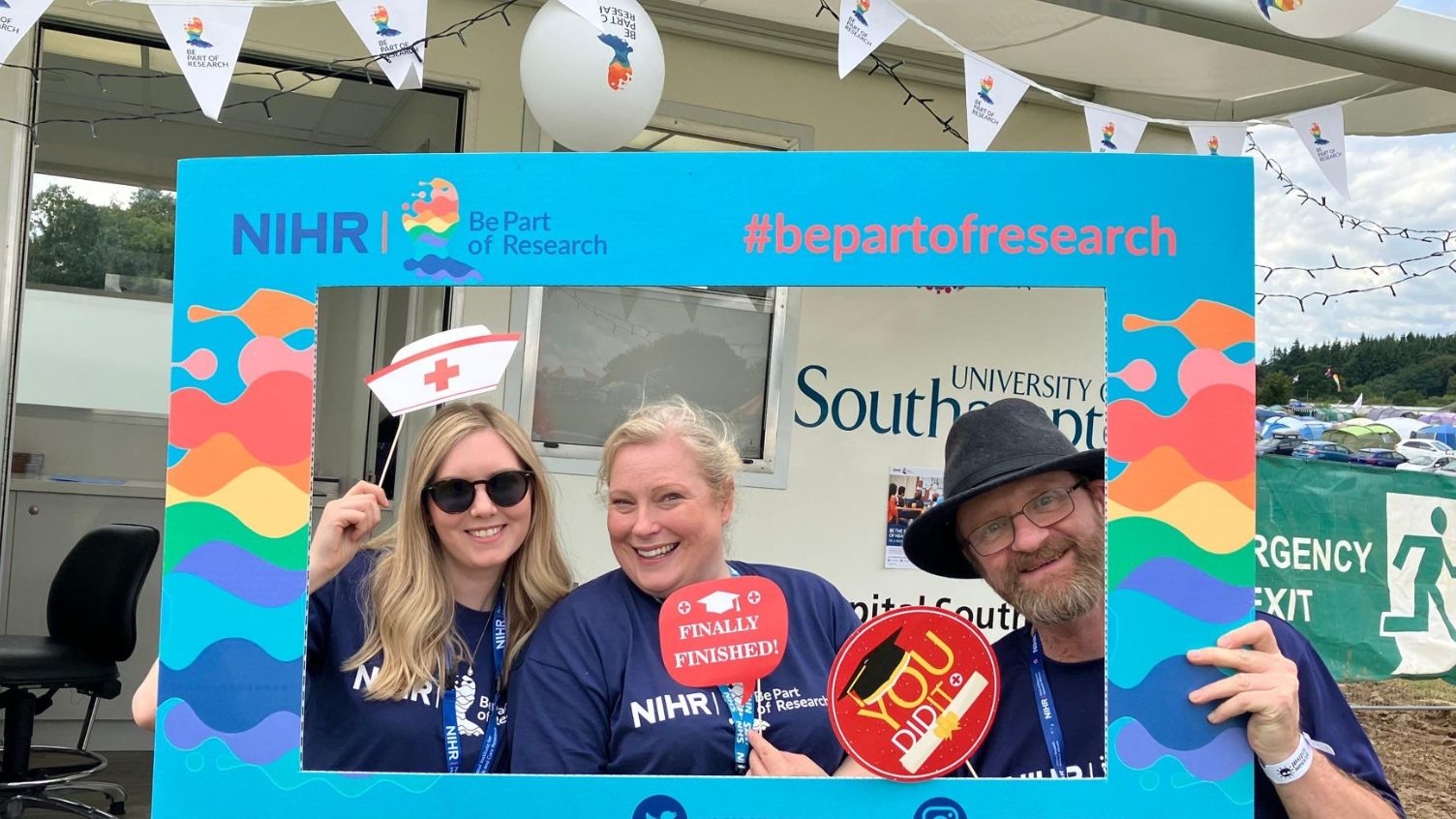Your Path In Research - Tanja Christensen, Research Practitioner, Devon Partnership NHS Trust
- 17 December 2022
- 4 min read
Tanja Christensen is a Research Practitioner at Devon Partnership NHS Trust. Here she talks about how research offers her a varied career.
Case Study: Tanja Christensen
Tanja Christensen is a Research Practitioner at Devon Partnership NHS Trust. Here she talks about how research offers her a varied career.
Q: How did you become involved in health and care research?
A: After I graduated university, I didn't know what I wanted to do. I knew I loved my degree and due to my previous work, I knew I loved being in a caring role and working in healthcare, but it was difficult to pinpoint where that left me. I signed up to get email updates for jobs within DPT, just to get a sense of what was out there. Then the job of an assistant research practitioner came up. I had never heard of 'research delivery' before, and I don't believe it is a field that is widely known about. Upon reading about what it entailed I applied and was lucky enough to get the job.
Q: Why did you get involved in research?
A: It was an honest fluke, but the best fluke I ever had. I was drawn to the job advert because it talked about getting people involved in research, arranging visits, setup of studies. I got the sense that I would get work with people directly, while not being directly responsible for their care.
Q: What do you enjoy about working in health and care research?
A: I enjoy the variety that the job gives me. The environment of this role is constantly changing, one day you might be visiting people at home, on another day you might be on the wards recruiting or taking bloods in a clinic room. Not every day is exciting, but I enjoy this too, you might spend a day screening for participants on the computer, but the rewards come when maybe the next day you find people who want to take part. I enjoy adapting to new situations and learning something new on every new study you work on.
I enjoy working on a research project knowing that the outcome of that research could inform future practice, feeling as though we are part of something that could potentially help so many people in the future.
I enjoy working as part of a team that runs many different studies at one time. The number of people working on a particular study varies, but we all understand each-others workload and can support each other even when there's a study that you work more independently on.
Q: How can research benefit/add to your career?
A: I would say there are a lot of ways research could benefit your career.
For me, I have decided to stay in research delivery and make it my career for as long as I enjoy it. My team are looking at supporting us to complete the Clinical Research Practitioner (CRP) Registration which is a positive step towards recognising the work research practitioners do.
I have seen many other psychology graduates or registered professionals join the team, with the ultimate goal of completing the Clinical Doctorate and working in the research team has been a clear steppingstone towards that goal. I feel confident that if I was going to choose a different path away from research, that this experience will help me with whatever I might apply for, there are so many transferable skills.
Q: Why do you think health and care research is important?
A: Health and care research is important because without research, we would never progress. Research is constantly trying to find ways to improve things, create more options for people and gain more insights into other people's experiences. Research gives people a space to share their experiences in the hopes that it might help someone else in the future. There is no end point, no finishing line as there are endless questions that need answering.
We also know that research active trusts have better outcomes than less research active trusts which I find fascinating and motivating.
Q: What are your hopes for your career in research?
A: I would like to become a registered Clinical Research Practitioner (CRP) and continue growing in my role.
Q: Why is it important more people become involved in delivering health and care research?
A: It is important for people to become involved in delivering research because research is not a one-person job, it can't happen without so many people pulling together to make it happen and I think that is a really wonderful thing. When this happens and you deliver a successful piece of research, it is something for everyone to be proud of.
Q: What impacts have you seen research make in health and care?
A: I have seen things on a small and large scale. On the small scale, having a nice visit with someone can brighten their day, and despite not being clinically trained, if someone has a concern, I am able to signpost or provide supportive ear.
On the large scale, I have worked on really innovative research and the positive results that came from that has the potential to help a lot of people in the future and I am really excited to see where those results will be applied.
Q: What would you say to someone thinking of starting a career in research?
A: Do it!


